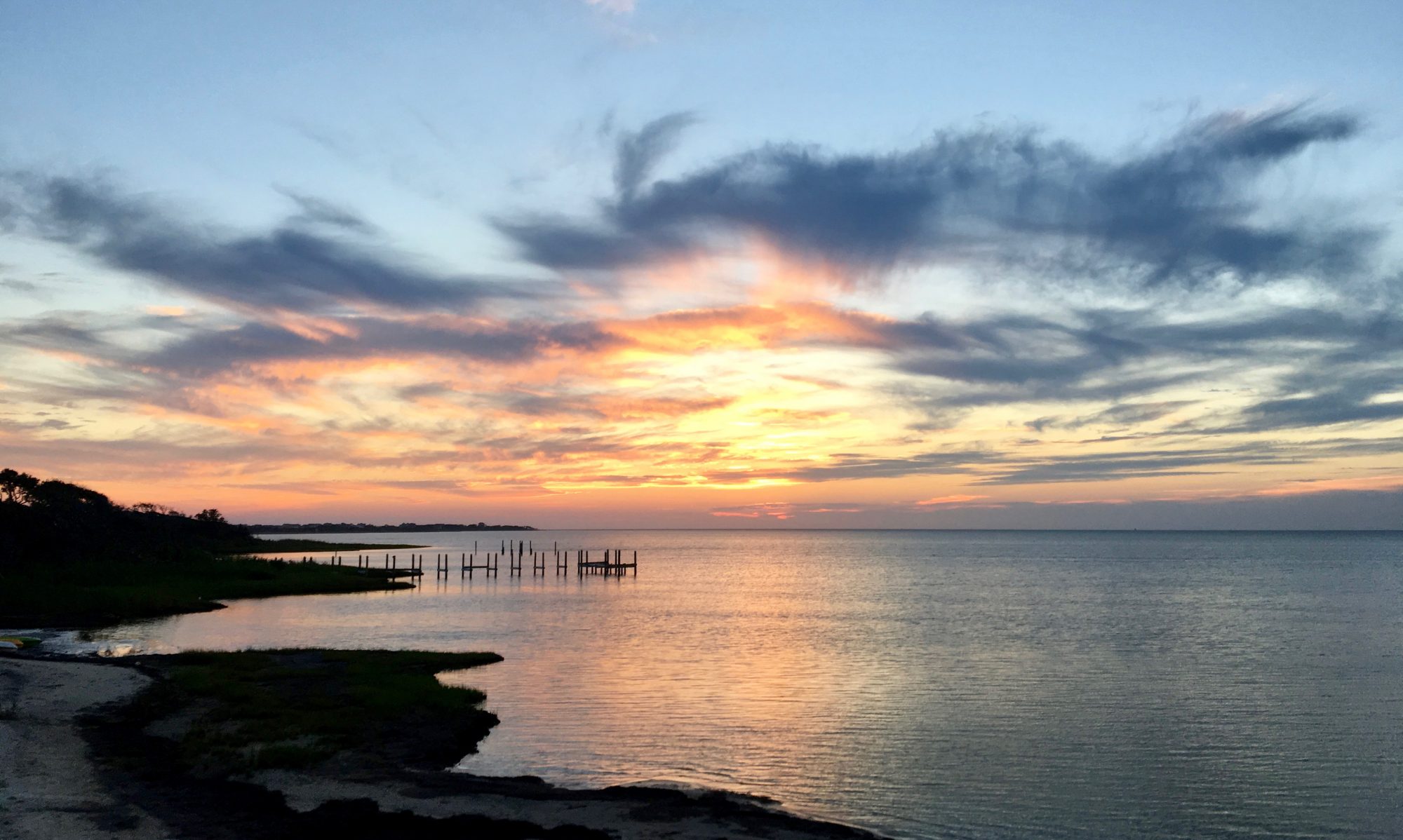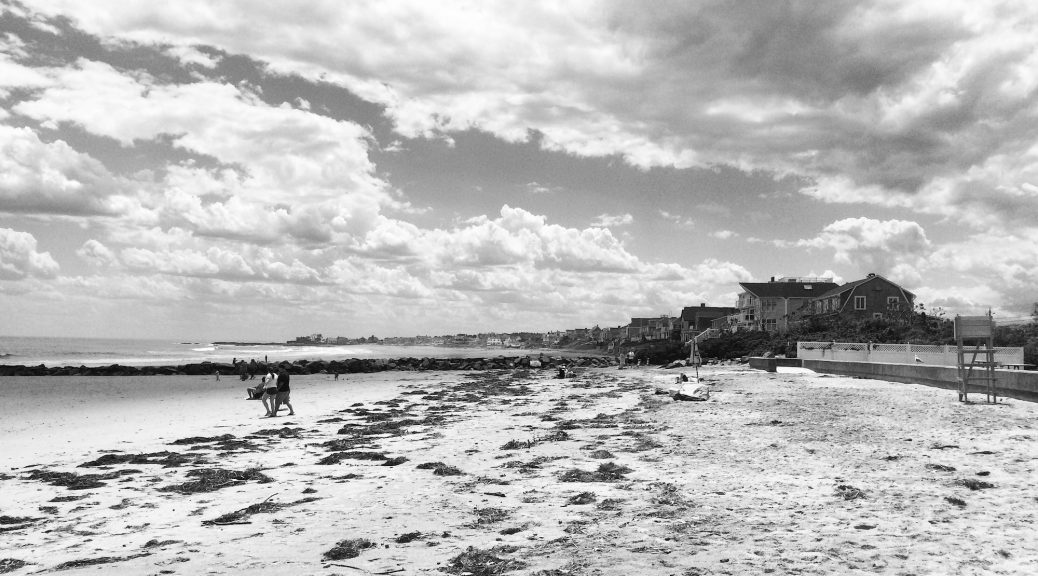By Lisa Graichen, Climate Adaptation Program Coordinator, University of New Hampshire Cooperative Extension and New Hampshire Sea Grant
Over the summer, coastal stakeholders from Maine and New Hampshire gathered in Wells, Maine, at the 2017 Beaches Conference to share updates and lessons learned from research and outreach efforts. The first Maine Beaches Conference was in 2000, and this year’s – the 11th – was the first to include New Hampshire. Over 200 people attended, with sessions on a wide range of topics, from using unmanned aerial systems (or drones) for habitat mapping to aquaculture curricula, marine mammal rescue, coastal law and policy issues, and much more.

What struck me the most about the conference was the breadth of the participants’ backgrounds. I spoke with an emergency manager from a local naval shipyard; listened to an artist describe her coastal mapping work as a means for communication and capturing love of place; learned from experts in ocean mapping, archeology, and environmental law; and heard from a representative of the US Department of Homeland Security. Colleagues shared examples translating research and monitoring programs from one state to the other. For example, a team in New Hampshire is learning from others in Maine how to build a volunteer beach profile monitoring program. While there are several unique, place-based factors in coastal management, there is a lot we can learn from the coastal management strategies and lessons in other places. Kristen Grant from Maine Sea Grant and University of Maine Extension shared stories from the Netherlands about stakeholder engagement in flood defense. She stressed the importance of providing opportunities for people to listen to, learn from, and build trust in each other.

The most unique part of the day was a plenary session called “Listening for a Change: Stories of Our Responses to Sea-Level Rise” that brought together a philosophy professor, a playwright, and a climatologist to share their reflections on climate change and sea-level rise. First, the philosophy professor wondered aloud what proof there was that carbon dioxide is causing global warming, and how we could distinguish between different sources of carbon dioxide. As he worked through his thinking on this subject, you could sense palpable discomfort in the room as he shared a somewhat skeptical perspective. I felt confused to hear questions being framed as unresolved that scientists know the answers to, and I saw others in the audience shake their heads and shift in their seats uncomfortably. The playwright was next. She described feeling like she is “not a native” in the world of science, and struggling to try to wrap her head around the impacts of climate change but not knowing where to look for information. She mentioned feeling scared as well as scolded for contributing to anthropogenic climate change, but not knowing where to look for valid information or what to do about it. Finally, the climatologist described his experience with a bipartisan effort in New Hampshire called the Coastal Risk and Hazards Commission and grappling with different perspectives about science and sources of information through that process. He suggested that solving problems isn’t about convincing people to see things your way, though we often feel a desire to try to do that. These were three people from different professional and personal backgrounds, all describing different experiences with understanding the science of climate change.

Unfortunately, there wasn’t much time left for the panel discussion and audience dialogue following the three speakers, and the only person who had a chance to ask a question used the opportunity to try to rebut the philosophy professor’s skepticism. I think there is often a desire to present scientific information to counter misinformation or misunderstandings, but we can sometimes skip the step of trying to really understand and acknowledge why people have those perspectives, where they’re coming from, and how best to engage in a productive dialogue.
I recently finished listening to Strangers in Their Own Land by Arlie Russell Hochschild, a sociologist from UC Berkeley, who journeyed to climb over what he called the “empathy wall” to gain an in-depth understanding of people who identify with the Tea Party.
“An empathy wall is an obstacle to deep understanding of another person, one that can make us feel indifferent or even hostile to those who hold different beliefs or whose childhood is rooted in different circumstances.” – Arlie Russel Hoschild
Academic or professional conferences can often be opportunities for like-minded folks to gather and learn from each other, which is certainly valuable, but it is important to remember the voices that may not be represented there. Let’s reflect on how we can bring those voices in, acknowledge different experiences and perspectives, and challenge ourselves in how we respond. I am grateful for the opportunity at this conference to be put in the uncomfortable space of confronting skepticism about climate change, feeling my initial emotional response, and reflecting on the need to really listen and figure out how to interact in a productive way. Especially in these highly polarized times, one of our most critical charges working in coastal management is to take the time to listen, face the discomfort of different perspectives, and work on communicating science-based information in ways that resonate. In other words, learning how to climb the “empathy walls,” understand other perspectives, and acknowledge others’ experiences. It’s not an easy task, but it may be our most important.



